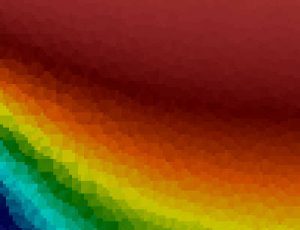E. Zuazua. Stable observation of additive superpositions of Partial Differential Equations. Syst. Control. Lett. Vol.93 (2016), pp. 21–29, DOI: 10.1016/j.sysconle.2016.02.017
Abstract: We address the problem of observing the solutions of a given Partial Differential Equation (PDE), submitted to unknown additive perturbations fulfilling another PDE, possibly of different nature. The problem under consideration is motivated by the issue of averaged control and observation. In the latter, one aims at determining the initial datum of a dynamics, submitted to unknown perturbations, by means of measurements done on the average of solutions with respect to the unknown parameters.
We do it in two different cases.
First, we assume that a given dynamics is perturbed in an additive manner by a state governed by a PDE, but not necessarily of the same type. In particular we consider the additive superposition of multi-physics solutions of wave and heat type, for instance.
Assuming the PDEs under consideration have constant coefficients, we prove that, the by now well-known observability properties of PDE (mainly heat and wave equations) from open subsets of the domain where the dynamics evolves, are stable under these additive perturbations.
The proof is rather systematic and easy to apply. It consists in composing all but one (the observable one) PDE operators so to reduce the problem to the consideration of a single equation and applying its known observability properties. The same proof leads to very interesting open problems for systems involving PDEs with variable coefficients where commutators lead to non-local lower order perturbations.
We then consider a particular case of a PDE depending on a parameter in a continuous manner. We show that the average is governed by the superposition of two distinct solutions, corresponding to the extremal values of the parameter, and experiencing an extra regularizing effect. This allows showing that the averaged observability property holds, for the continuous average, but to the price of losing a finite number of derivatives. This opens a wide range of interesting problems to be explored.

